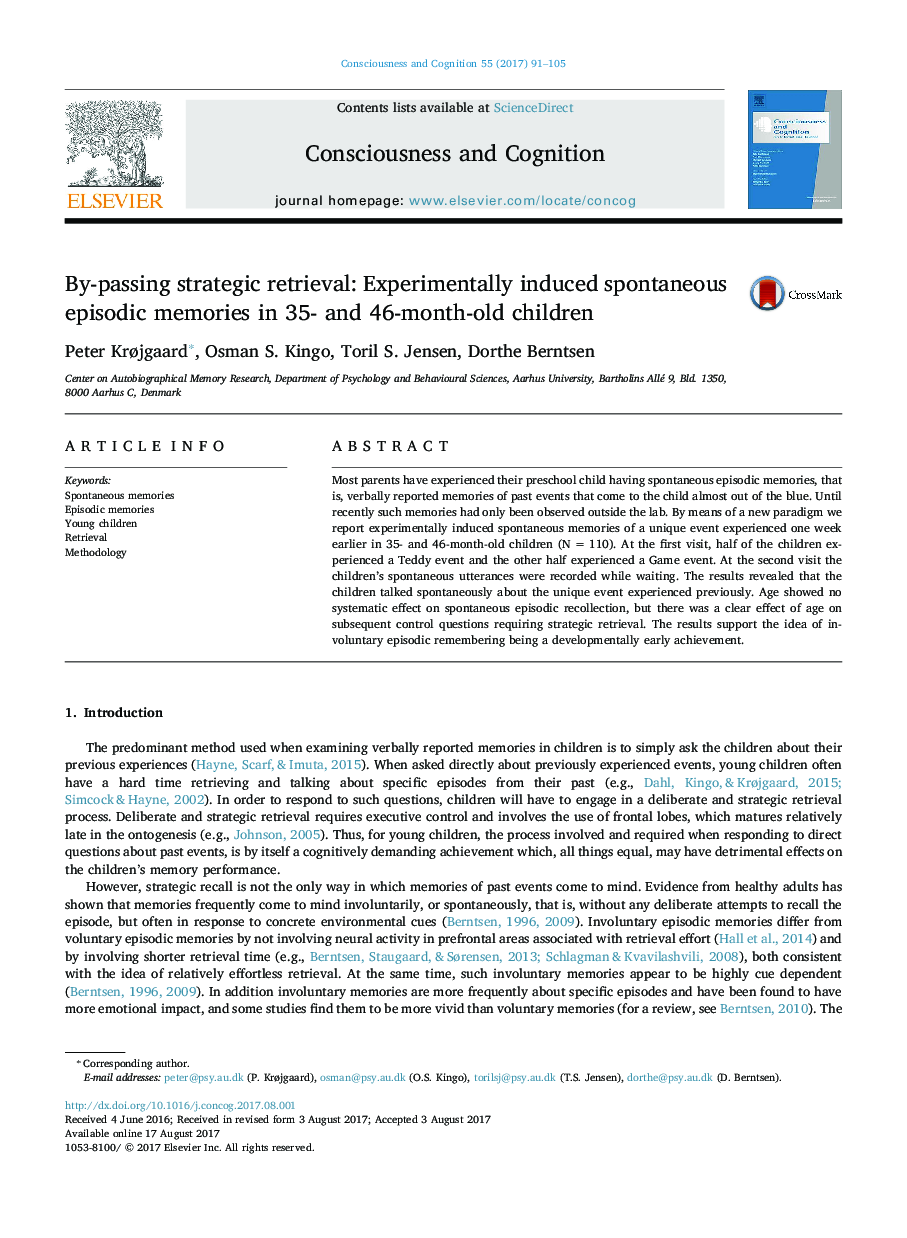| Article ID | Journal | Published Year | Pages | File Type |
|---|---|---|---|---|
| 5041740 | Consciousness and Cognition | 2017 | 15 Pages |
â¢We show how spontaneous memories can be induced experimentally in young children.â¢Age showed no systematic effect on spontaneous episodic recollection.â¢In contrast, age affected the control questions requiring strategic retrieval.â¢The results challenge the tenet that episodic memory develops late in childhood.
Most parents have experienced their preschool child having spontaneous episodic memories, that is, verbally reported memories of past events that come to the child almost out of the blue. Until recently such memories had only been observed outside the lab. By means of a new paradigm we report experimentally induced spontaneous memories of a unique event experienced one week earlier in 35- and 46-month-old children (NÂ =Â 110). At the first visit, half of the children experienced a Teddy event and the other half experienced a Game event. At the second visit the children's spontaneous utterances were recorded while waiting. The results revealed that the children talked spontaneously about the unique event experienced previously. Age showed no systematic effect on spontaneous episodic recollection, but there was a clear effect of age on subsequent control questions requiring strategic retrieval. The results support the idea of involuntary episodic remembering being a developmentally early achievement.
